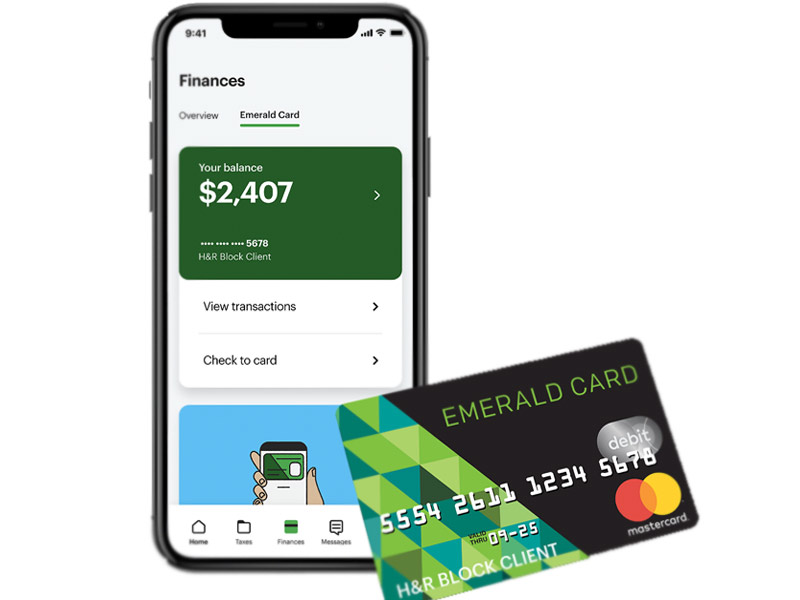Cobra Insurance is a health insurance plan provided by your employer that you can use if you quit or lose your job. COBRA is a federal law that provides this coverage.
But there’s a catch: you’ll be responsible for the entire bill, plus up to 2% in administrative fees. If you’re used to your employer paying the premium, be prepared for sticker shock.
Continue reading to learn more about how cobra insurance works. What is the cost of cobra insurance? Is it possible to have cobra insurance if you quit or lose your job?
- MAIN POINTS
- COBRA allows you to continue your prior employer’s health insurance coverage
- COBRA compels you to pay the full cost of your health insurance plus a 2% administrative fee.
- You have 60 days to decide whether or not you want to enroll in COBRA. Remember that you’ll have to pay retroactive premiums if you join up on day 59.
About COBRA insurance ?
The Consolidated Omnibus Reconciliation Act was approved by Congress two decades ago to provide a safety net for families. People who lost their health insurance before that had to try to get affordable individual insurance on their own, which wasn’t simple. That was often impossible, particularly if you had pre-existing problems such as diabetes or heart disease. People were frequently turned down for insurance or faced high premiums.
COBRA allows you to continue your prior employer’s health insurance coverage. You get the same coverage as before, however your former company no longer contributes to the cost of coverage.
Other solutions are available under the Affordable Care Act (ACA). The Affordable Care Act (ACA) established health insurance exchanges, which allow customers to shop for individual plans. If you have an ACA plan, you may be eligible for premium assistance if you satisfy certain income requirements.
However, if you lose your work, there is just one method to keep your employer-sponsored coverage, and that’s COBRA.
If you and your family would otherwise lose coverage, you can chose COBRA for yourself and your family because:
- You resigned from your position, unless it was for “severe misbehavior,” you were fired.
- Your working hours have been cut.
- Because of a death or divorce, you no longer have coverage.
Cobra Insurance – How it works?
If you become eligible for a COBRA plan as a result of a job loss, your employer must notify your health insurance within 30 days after your final day.
After that, the health insurance carrier will contact you with instructions on how to enroll in COBRA. Cost estimates will be included in that material, so you’ll know how much you’ll have to pay to keep your health coverage through COBRA.
You have the option of enrolling in COBRA or declining coverage. You have 60 days to make up your mind.
You’ll utilize your health insurance plan as you would when you were employed once you’ve signed up for COBRA. You, on the other hand, will be responsible for all charges without any assistance from your former employer.
COBRA is good for at least 18 months. Depending on the qualifying event, you may be able to extend your COBRA coverage for up to 36 months.
If you want insurance after your eligibility term ends, you’ll need to find another health plan. Other possibilities can be found in the COBRA coverage alternatives section further down this page.
Cobra Insurance Actual Cost?
COBRA compels you to pay the full cost of your health insurance plus a 2% administrative fee. Your prior employer is no longer able to assist you.
The cost of COBRA is determined by the plan’s cost to the employer. For a family of four, the average yearly cost of employer-sponsored health insurance is more than $22,000. Employers often cover well over half of the premium costs. With a COBRA plan, however, the former employee is responsible for all expenditures, which can be as much as four times what the former employee was paying in premiums for coverage while you were employed.
What is the cost of Cobra insurance? COBRA is costly, but there are several options for assistance. Using a Health Savings Account (HSA) to help pay for COBRA is one option. HSAs are a type of health savings account that can be found in high-deductible health plans. These savings accounts allow people to put money aside tax-free for health-care expenses, including COBRA.
Federal income tax credits are another option, but eligibility is limited. For persons who lose their jobs as a result of “negative effects of global commerce,” the US Department of Labor offers a Health Coverage Tax Credit (HCTC). The HCTC is responsible for 72.5 percent of premiums. If you qualify, the HCTC may be able to lower your COBRA rates to the same level as when you were employed.
Who is eligible for cobra?
For those who have lost their employer-sponsored health insurance, COBRA is a terrific choice. You may be eligible for COBRA financial assistance if you have experienced one of the following qualifying events:
Having your work terminated
Work hours are lost or reduced.
COBRA is no longer exclusively for employees if you quit your employment. Dependents can also apply for it or may be eligible if certain qualifying events occur, such as:
In the event that a covered employee dies or becomes disabled,
Divorce or legal separation results in the loss of one’s dependant status.
When you become eligible for Medicare, you lose your dependant protection.
After the age of 26, you can no longer be considered a dependent.
How to Apply for COBRA Insurance
When you lose or quit your work, die, or become eligible for Medicare, your employer must notify the health plan within 30 days. Your health insurance provider will send you instructions on how to continue your coverage under COBRA.
You have 60 days to decide whether or not you want to enroll in COBRA. Remember that if you sign up on day 59, you will be responsible for retroactive payments from the time you were eligible for COBRA.
What is the duration of COBRA?
COBRA allows you to keep your previous employer’s health insurance for up to 18 months.
Your spouse and dependents, on the other hand, may be protected for up to three years in some instances. In addition, dependents can elect COBRA coverage if they lose coverage due to:
Employee’s death is covered.
When an adult child reaches the age of 26, he or she can no longer remain on a parent’s insurance plan.
Legal separation or divorce from the covered spouse
The covered employee’s Medicare eligibility.
Remember that you must be covered by your employer’s plan at the time of your job loss or other occurrence. If you don’t, you won’t be able to get COBRA coverage.
Eligibility for COBRA health insurance
COBRA covers commercial businesses with 20 or more employees, as well as state and local governments. Employers with less than 20 employees may also be subject to “mini-COBRA” rules in several jurisdictions. For further information on mini-COBRA plans, see the section below.
If you have a family health plan, you do not have to enroll all family members in COBRA. For example, you can choose not to participate in COBRA but your spouse and children do, or vice versa.
You can remove your waiver of COBRA coverage at any time, as long as you’re still inside the 60-day election period. As long as you pay the premiums on time, the coverage will go back to when you first became eligible for COBRA.
You can also discontinue COBRA coverage at any point; you’re not obligated to stay on for the entire 18-month period when you join up.c
Cobra Coverage Ends If:
You’ve reached the end of your insurance coverage period.
Pay no more premiums.
Cobra Also Ends if:
The company closes its doors.
Workers’ health insurance coverage are no longer available.
You can switch to the new plan like everyone else if your company changes health coverage, but you won’t be able to keep your old plan.
State legislation governing COBRA insurance
For people who worked for small enterprises, most states have mini-COBRA statutes. Former employees of companies with 20 or fewer employees are covered by mini-COBRA legislation.
These state laws, like the federal COBRA law, give COBRA health insurance to former employees. The term of COBRA eligibility, however, may vary:
Mini-COBRA coverage is available in sixteen states for a period of 18 months.
Mini-COBRA is available in New York and California for a period of 36 months.
Connecticut residents are eligible for a 30-month mini-COBRA plan.
Mini-COBRA plans are not available in all states. Other states have more stringent eligibility requirements:
Only three months are allowed in Georgia, Hawaii, and Tennessee.
Mini-COBRA plans are only valid for 63 days in Oklahoma.
39 states are allowed in North Dakota.
Certain situations are also eligible for enhanced eligibility in some states:
If you’re disabled in Florida, you can get an extra 11 months of coverage.
Illinois allows spouses aged 55 and up to keep COBRA coverage until they are Medicare-eligible, although there is a 20% administrative cost.
If the former employee becomes disabled, Massachusetts extends coverage for 30 months and extends eligibility for dependents for 36 months if the employee dies.
For persons involved in a divorce in North Dakota, COBRA coverage is extended for another 36 months.
If the person is pregnant or requires surgery, Oklahoma allows for an additional six months of coverage.
As you can see, state rules differ substantially, so check with your state’s Department of Insurance to learn more about mini-COBRA legislation in your state.
Until September, the stimulus package lowers COBRA costs.
A provision to assist people with COBRA was added in the American Rescue Plan of 2021, often known as the latest COVID-19 stimulus plan.
The $1.9 trillion proposal includes paying 100 percent of COBRA coverage premiums for anyone who have been laid off as a result of the COVID-19 outbreak through September. Until September, the package will cover COBRA payments. COBRA plan members will have to pay the full cost of COBRA insurance after that.
People will also have a 60-day opportunity to determine whether or not to enroll in a COBRA plan as part of the package. That period began on April 1st. For a limited time, people who previously denied COBRA are once again eligible.
The COBRA subsidy will cover the cost of COBRA coverage for a limited time, but not everyone will be eligible. COBRA subsidies are not available to people who are eligible for Medicare or another group health plan. If you might join a spouse’s health insurance plan through an employer, you won’t be eligible for COBRA assistance.
COBRA replacement options
Before you choose COBRA coverage, think about all of your options. You might be able to find a better price elsewhere.
Aside from COBRA, you have the following options:
- Purchase a health insurance plan through the health insurance exchange. You have the option to acquire coverage outside of the typical open enrollment period if you lose your employer-sponsored plan. Insurers can’t charge considerably higher premiums or deny your application because of your condition under the health-care reform bill. If your income is less than 400 percent of the federal poverty threshold, you may be eligible for financial aid to purchase a marketplace plan. For a family of four, that works out to nearly $103,000.
- Purchase a health plan via an insurance agent, corporation, or website. (For further information, see “How to Purchase Individual Health Insurance.”) You can buy an ACA-compliant health plan with features that match those offered in the markets outside of the marketplaces, but you won’t be eligible for a subsidy or tax credit. On the other hand, you might be able to locate plans outside of the marketplaces that have more convenient provider networks, your favorite doctors, or features that go beyond what the marketplace plans offer.
- When you start a new employment, sign up for coverage with your new compan
Request that your spouse enroll you as a dependent on his or her employer-sponsored health insurance plan. - If you’re qualified, purchase a catastrophic health plan. Catastrophic health insurance is only available to persons under the age of 30 and those who are experiencing severe challenges, such as homelessness. The premiums for these plans are modest, but the deductibles are substantial. They also offer comprehensive coverage similar to that offered by an ACA-compliant plan.
- Check to see if your children are qualified for coverage through the federal and state Children’s Health Insurance Program, which provides health insurance to low- and moderate-income families.
- Purchase a short-term health insurance coverage. These low-cost policies don’t offer nearly the same amount of coverage. For example, obtaining a short-term plan that covers prescription medicines and mental health care may be difficult. These plans are valid for a year and can be renewed twice more. A few states prohibit the selling of short-term plans, while others limit the length of time you can retain one
If you decide to go with the alternatives, double-check the provider networks and coverage. You probably don’t want to leave your doctor and some of the benefits you’ve grown accustomed to in your employer-sponsored plan
COBRA: Frequently Asked Questions
If I quit my job, how does COBRA insurance work?
COBRA continuation coverage works the same whether you quit or lose your coverage in another way.
Within 30 days following your last day on the job, your employer will tell your health insurance carrier. Your health insurer will contact you with details on how to enroll in COBRA and how much the coverage will cost.
You’ll have 60 days to sign up for COBRA insurance after that. You are not obligated to sign up right away. If you wish, you can wait until the conclusion of the 60-day term to sign up.
Is COBRA coverage prohibitively expensive?
COBRA is, in most cases, more expensive than other types of health insurance.
COBRA allows you to preserve your former employer’s health-care plan, eliminating the need to transfer providers or learn a new plan. COBRA plan subscribers, on the other hand, are responsible for the entire cost of the health plan. The prior employer does not compensate you in any way.
For a family of four, the average job-based health plan costs more than $22,000 per year. Employers often cover more than half of the cost of premiums. With COBRA, you are solely responsible for all financial obligations. This can result in high-cost health insurance.
Is COBRA coverage appropriate for you?
If you want to make sure your providers are in the network and you can’t locate a more reasonable plan that they accept, COBRA may be a good option.
If you intend to receive another health insurance plan soon and want to make sure you have comprehensive health insurance for a limited period, COBRA coverage may be a suitable option.
Is it worthwhile to purchase COBRA coverage?
COBRA is costly, but if you can’t locate a better option, it can be worth it. Let’s imagine the only individual health insurance options in your area are prohibitively expensive, your doctors aren’t covered by the individual plans’ networks, and the individual plans don’t give the same level of coverage as your COBRA plan.
In that situation, you might consider a COBRA plan.
If you expect new coverage to come soon, such as with a new employer, and merely want to bridge coverage between employers, a COBRA plan may be right for you.
If I quit my job, what happens to my health insurance?
Your company may or may not offer COBRA insurance if you quit your job. You can discover out by asking a management if the company has any plans in place to give health insurance to employees after they depart. Individuals will need to look into other options such as purchasing individual healthcare policies on their own or looking into public services such as Medicaid if their employer does not provide coverage.
Does COBRA insurance includes dental and vision healthcare?
COBRA does cover dental and vision premiums for an 18-month period. It provides dental and vision coverage as a secondary insurance, which implies that the employer is responsible for paying for these benefits first.
If you are laid off or quit your work, COBRA will cover your health-care expenditures for up to 18 months after you leave your employer. If you wish to be covered by Cobra after quitting your job, you must have both dental and vision coverage while employed.
If you have a dental and vision plan through your employer, for example, you will not lose coverage if you leave your job and become eligible for COBRA. You can keep one or the other through COBRA if your dental and vision insurance is separate from your medical insurance. If your dental or vision coverage is included in your medical insurance, you should keep both.
After you leave your work, how can you acquire COBRA health insurance?
- Resign from a company with 20 or more employees or have your working hours cut.
COBRA continuation coverage is available to private sector and state or local government businesses with 20 or more employees. Many states have regulations that are similar to COBRA and apply to businesses with less than 20 employees. Part-time employees are counted as half of a person, whereas full-time employees are counted as one.
If you’ve quit your work or had your hours decreased for reasons other than “gross misconduct,” you can keep your health insurance for up to 18 months if you keep paying your premiums.
HERE’S THE CATCH: current employees must be enrolled in the employer’s health plan. If it isn’t, you won’t be allowed to choose COBRA unless the company has entirely shut down or discontinued the health-care program.
- Keep an eye out for a letter in the mail.
Within 30 days of a qualifying event — in this case, termination or a reduction in hours — your former employer must tell the health plan’s insurer.
Following that, the plan administrator has 14 days to mail you a notice outlining your coverage, where you should send your documentation, and, most importantly, how much it will cost. The overall premium cannot surpass 102 percent of the cost of health coverage for an existing employee, according to COBRA rules. That implies you could be liable for the whole amount of your premium, plus your employer’s share, plus a 2% administrative fee.
If you don’t want to wait for a letter, you can get further information from the health plan administrator or the company’s benefits manager.
- Choose health insurance within 60 days.
You have 60 days after getting an election notification to choose whether or not to receive health coverage. Your spouse or dependents would be covered under COBRA if your plan covered them when you worked at the company.
Follow the directions in the notice to choose coverage.
- Make a payment within 45 days of receiving the invoice.
If you choose COBRA coverage, you have 45 days from the day you mailed in your election form to pay the first month’s premium. You will be protected retroactively if you pay in full and on time. If you don’t make the payment, you may lose your COBRA coverage completely.
Coverage can last up to 18 months from the date of the initial qualifying event (being laid off), or longer in unusual circumstances including retirement, disability, death, or divorce. Your coverage may be cancelled if your monthly premiums are not paid in whole and on time, your company quits offering a group health plan, you become eligible for Medicare, you enroll in another plan, or you participate in fraud or other shady behavior.



